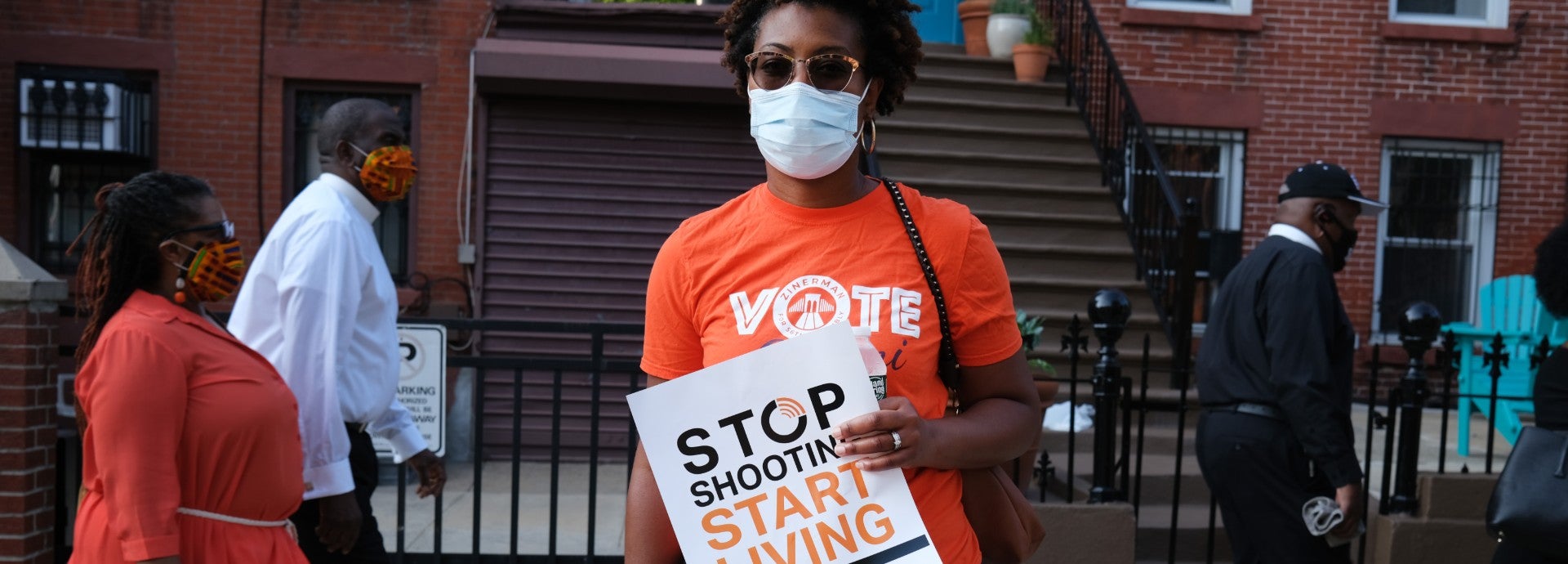For generations in America, bullets have haunted Black Americans, their often fatal impact has pierced our collective memory and traumatized entire communities.
As devastating as it is to acknowledge, America’s gun violence problem particularly haunts Black women; our sons, brothers and fathers are 10 times more likely to die from gun violence than their White counterparts. Equally as troubling, Black women die from gun related domestic partner abuse at disproportionately higher rates than any other group. Our reality exists on top of the horrible memories I hold as a native of Dayton. August marks one year since the ‘Dayton Shooting’ that took the lives of nine of my neighbors the same weekend of the tragic massacre in El Paso, Texas.
This is an unacceptable condition that now exists alongside a global pandemic and the gun violence epidemic isn’t slowing down.
While the majority of Americans were under some type of ‘Safer-At-Home’ order during the earlier days of the COVID-19 pandemic in America, it seemed gun violence incidents might come to at least a temporary halt. And while I, and many other gun violence prevention activists were hopeful we would have a reprieve from unnecessary death due to guns that hope for relief was quickly ruined.
With millions of Americans at home, COVID-19 exposed one of American’s darkest kept secrets – intimate partner abuse. Intimate partner abuse or domestic violence spiked nearly 20 percent in cities across America during the early days of the pandemic. It is already the case that there are on average 52 women (disproportionately Black and Brown) shot and killed every month by an intimate partner according to the advocacy group, Everytown for Gun Safety.
The issue of domestic partner violence became personal for me when I learned that my childhood friend Krysten Connally was killed by her former partner. My stomach sank when I heard the news. Krysten had an affectionate laugh and was an aspiring comedienne. In high school, she was an honor roll student and as a mother, she was raising her son to be the same. She had a bright spirit, natural tresses, and dimples deeper than the sea. Unfortunately, she was murdered by her ex-boyfriend in front of their four-year-old son during this pandemic. She was just 32 years old, with an entire life ahead of her.
Her untimely death like so many other gun deaths in this country was preventable.
As a country, we must acknowledge that gun violence is now a public health crisis within a public health crisis. Much like the Coronavirus, it is not something we can escape by ignoring it. It will catch up to us every time there is a domestic partner incident, a mass casualty or when violence breaks out in our neighborhoods because access to guns is more easily found than access to the kind of opportunity that stabilizes communities.
Again this issue is inescapable — we were reminded over the Fourth of July weekend that our children are not exempt from this epidemic either. DaVon McNeal, 11-years-old, was killed when gun fire erupted at a community cookout his mother had organized for their block in Washington, D.C.. In Chicago, a 7-year-old girl was playing with kids near her grandmother’s home when a group opened fire on adults and she was shot in the head. In Atlanta, seven-year-old Secoriea Turner was killed when gun fire struck her mother’s vehicle in a parking lot. We cannot accept gun violence as a way of life for the next generation.
America must tackle this issue like the public health crisis it is. First — we have to stop the bleeding. That is why we must reject the notion that gun violence is just part of American culture. We must speak loudly about the National Rifle Association’s check writing scheme to our leaders, which buys their silence. We must lean in to advocate for common-sense gun legislation like universal background checks and red flag laws that can save lives. However, these policies require a courageous investment from leaders who will fight for good policy and reject money from powerful interest groups that aim to buy their silence.
We must make real and lasting investments in job training programs, incentivize entrepreneurship and support the interests of our young people by strengthening our schools and funding after-school programs. We must build trust between communities and police — that’s why I believe The George Floyd Justice in Policing Act is a step in the right direction when it comes to centering community policing and civilian involvement in keeping our communities safer.
That’s part of the reason I’m running for Congress. Last August, my community was shaken to its core by the Dayton shooting and the murder of my friend Krysten this year has been doubly traumatic. As time stretches on, I realize we must muster our outrage, our pain and our grit to end this crisis and demand that our leaders act, I know I will.
Desiree Tims is Democratic candidate for United States Congress in Ohio’s Tenth Congressional District, a former Obama White House staffer and aide to Sens. Kirsten Gillibrand and Sherrod Brown.
